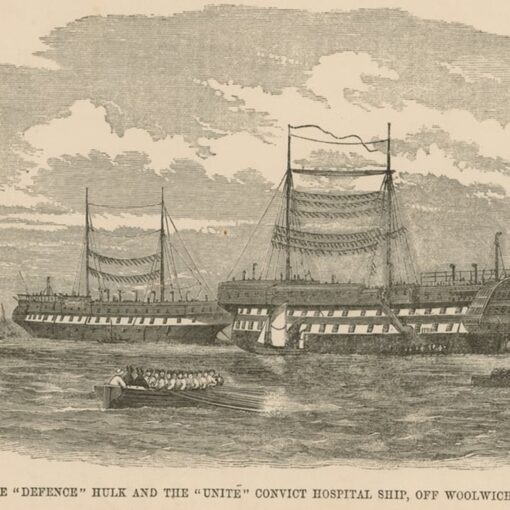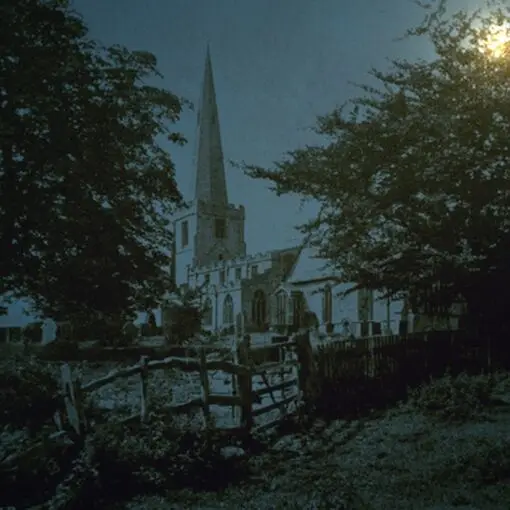[A longer version of the following story appeared in the Long Eaton Advertiser in January 1947]
Many details of the life and change in the ancient township Sawley are revealed by Mr William Smith of Towle-street, who is the oldest inhabitant of the village and who will celebrate his 93rd birthday this month. In a talk with this hale and hearty veteran farm worker he recalled scenes people and happenings as far as eighty years ago. Born at Sawley in 1854, Mr Smith retains vivid recollections of his youthful days.
In his early days, Sawley consisted of 200 houses and less than 800 inhabitants, then chiefly engaged in farming, boating, stocking making, warp net and lace making and blacksmith work. In Smith’s early days Sawley possessed four small one-storey factories containing about ten warp lace machines, owned by the Smedleys and Cliffords and later by Mr John Thorpe, several of these warp machines being subsequently shipped to America.
An Italian named Arnabiliano also made warp lace in Sawley. A small number of women possessed lace frames and used to sit outside their homes in summer especially on Smithy-row (now demolished) working designs on plain net from paper patterns underneath.
During the building of the new railway, several of the navvies lived in the thatched cottages adjoining the White Lion, one chimney caught fire and burnt the cottages down along with the small factory at the end of the Old Twitchell.
Spelling to Music
Mr Smith well remembers when there was only the small parochial school, kept by Mr Joseph Harriman, where spelling was taught to the accompaniment of his violin. The National School was built in 1869 on land given by the late rector Rev Samuel Hey. Mr Smith, along with another old inhabitant, the late George Wilmot (Beetles) were among the first scholars of the infants’ mistress, Miss Booth; the late John Windle being the first schoolmaster.
Mr Smith remembers many of the male adults wearing top hats daily, even the village blacksmith, and said the hats were not uncomfortable. He also recalled the Smiths were a considerable clan in Sawley in his youth, one of them, John Smith, farmer, having recently died at the age of 94.
In his prime and younger days, Mr Smith was in great request as a mower, before machinery had replaced the scythe and as stacker and thatcher and sheep-shearer. He has a remarkably retentive memory and recounts how hay harvest mowers would start early as three or four o’clock, resting a couple hours or so during the heat of the day and working on again until darkness set in. In those days people were sociable and happy. Class distinctions were unknown at harvesting and all village folk could spare time from household duties and children holiday for few hours came along and freely lent a hand and unless specially employed there was no thought of any helper receiving payment for harvesting service.
Smith has pleasurable memory of Bonfire Night and the Wakes. The boys of the village and sometimes elder ones used to start “progging” for the thorns and wood for the bonfire sometimes a fortnight before November 5. They often entered into competitions as to which gang got the biggest load to burn. Outstanding events were, beside firing off rudely made cannon, letting off squibs and crackers with the carrying and swinging of lighted tar-rope. All joined in the glorious November 5 celebrations.
Mr Smith several times witnessed people being baptised in the River Trent and remembers the old Sutherick of four old houses standing in front of the farm garden up to the entrance gate. Tenants were Billy Brown, Ann Reynolds, Mr and Mrs J Turner (gravel getters) and Bessie Roper (great grandmother of Councillor E W Roper).
Over the Bridge
It not easy for one of such a great age to look back to the good old days, for old people were not cared for as they are at present. If the old people fell on evil days with no one to help them they were forced go “over the bridge to the poor house” [the workhouse] which of course was usually a life sentence.
“In my younger days” he said “our real Englishmen gave their time and talents in the National Government free. To-day I noticed the present Government had not been governing very long before they voted themselves £20 a week salary. In my early days were no paid parliamentarians; no local government; no agricultural control commissioners with thousands of forms to fill in; no causeways or tarmac roads; no street lamps; no gas at Sawley, and very few oil lamps. Light was chiefly by tallow candles”.
Mr Smith declared he had seen as many as 6 candles burning at once to assist the women “beading and bugling’ stocking chevening and clipping and scalloping for a few shillings week.
The old Market Cross which once stood in Cross-street was probably removed to the churchyard and afterwards demolished by vandals, for in the old Nook stackyard there were pieces of stone used as wickets by the village lads at cricket and afterwards used to set hay and corn stacks upon.
The gate at the beginning of the little bridges (opposite the footpath to Trent Lock) was an ancient right of way, to allow any Sawley parishioner to take a horse and cart to fetch gravel or sand from the Trent. The strip of land in the Harrington field (in front of South Cottage) was said to belong to parish. This meadow was also used for donkey races, beside many cricket matches.
Good Old Days
Mr Smith remembers King Edward VII as Prince Wales, being married to Princess Alexandra of Denmark on March 10, 1863. The children marched from the Church School to the Market-place and sang “God Bless the Prince of Wales”.
Even then in those far off days, Mr Smith contends that people out more out of life than they do today with all the up-to-date amenities under the guise of progress. People were certainly happier and more contented, notwithstanding their restricted outlook. The social life of the district was far more enjoyable, people making their own pleasure.
Mr Smith now just jogs along as the days come and go, being still greatly interested in to-day’s cricket and anxiously awaited news of the results and scores.
[William Smith (1854-1947) became ill before he’d had chance to read the article and died a few days later, just after his 93rd birthday].




